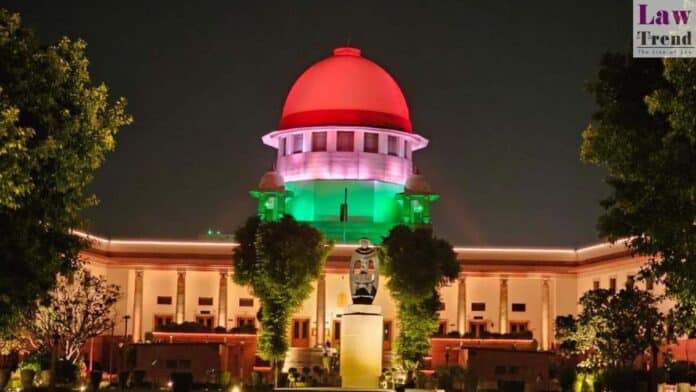The Supreme Court said on Friday the developments that followed the unsavoury incident of slapping of a Muslim schoolboy by his classmates at the behest of their teacher in Uttar Pradesh were the result of the State not doing what was expected of it after the offence was committed.
A bench of Justices Abhay S Oka and Ujjal Bhuyan said the state should have been concerned about the manner in which the incident had happened.
The bench asked advocate Shadan Farasat, appearing for petitioner Tushar Gandhi, to give suggestions to the state government on the implementation of the recommendations of Tata Institute of Social Sciences (TISS) with regard to counselling of the victim child and his classmates.
It was hearing a plea filed by Tushar Gandhi, the great grandson of Mahatma Gandhi, seeking speedy investigation of the case.
“All this happened because the State did not do what was expected of it after the offence. The state should have been concerned about the manner in which the incident had happened. Therefore, we have raised other issues also regarding implementation of the Right to Education (RTE) Act,” the bench said and posted the matter for further hearing on February 9.
During the brief hearing, senior advocate Garima Prashad, appearing for the Uttar Pradesh government, said the state’s education department has filed an affidavit on the implementation of the TISS report.
Farasat termed the affidavit as “inadequate” and said he needs to file a detailed reply to it, especially on the implementation of the recommendations made by TISS.
The bench asked Farasat to give in writing his suggestions to the state government after consulting the father of the victim so the recommendations can be implemented.
Prashad said the victim child has to travel 28 km to his new school.
“Although it is for them (child’s family) to decide, I am just pointing out the fact that the small child has to travel 28 km every day to school,” she said, adding it is against the mandate of the RTE Act, which stipulates that a student from class 1 to 5 has to reside within 1 km radius while students from class 6 to 8 can reside within a radius of three km,” Prashad said.
Responding to her, Farasat said, “There are no good schools in the vicinity. The school which was within the range did this to him.”
Also Read
The child was admitted to a private school quite far from his place of residence at the request of his father following the incident. The top court had on November 6, 2023 asked the state government to facilitate the boy’s admission to a private school.
The bench said it will first look at the implementation of the recommendations made by TISS and then deal with aspects of the RTE.
On November 10, 2023, the top court had castigated the state government for not complying with its order to depute an agency for counselling the victim child.
It had appointed the TISS, Mumbai to suggest the mode and manner of counselling the child and his classmates involved in the incident.
The Muzaffarnagar Police had registered a case against the woman teacher for allegedly making communal remarks against the Muslim boy and instructing his classmates to slap him for not completing his homework. The school was also served a notice by the state’s education department.
The teacher was booked after a video showed her purportedly asking students to slap the Class 2 boy in Khubbapur village and also making a communal remark.




